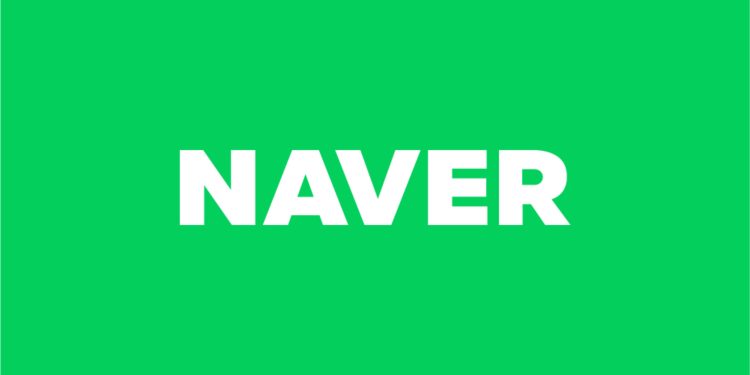Naver’s acquisition plan signals a larger shift toward institutionalising cryptocurrency services within mainstream finance. But regulatory scrutiny and valuation disputes may slow progress before final approval.
Naver is reportedly close to confirming its acquisition of Dunamu, the operator of South Korea’s largest cryptocurrency exchange, Upbit. Industry sources say the proposal will be brought to Naver’s board meeting next week, while Dunamu will review the agreement at its own board session on November 26, 2025. The move could mark one of the most significant shifts in Korea’s financial technology sector to date.
The acquisition is expected to be structured through a full stock swap via Naver Financial, creating a combined fintech entity valued at over 20 trillion won ($14.7 billion). By integrating Naver Pay’s digital payment infrastructure with Upbit’s strength in virtual assets, the companies aim to build a powerful finance-and-crypto platform.
Regulatory Approval Will Be the Deciding Factor
The proposal must pass scrutiny from multiple regulatory bodies before it moves forward, including:
- Korea Fair Trade Commission (KFTC) – competition and market dominance review.
- Financial Services Commission (FSC) – financial stability assessment.
- Korea Financial Intelligence Unit (KoFIU) – compliance review tied to crypto regulations and VASP rules.
Since Dunamu is classified as a Virtual Asset Service Provider (VASP), regulators are expected to closely examine governance structures, ownership changes, and anti–money laundering compliance. Updated guidelines introduced in 2024 expanded oversight to major shareholders and executives — making regulatory approval a complex process.
Won-Backed Stablecoin Is the First Strategic Target
If the acquisition clears regulatory barriers, the companies plan to launch a won-backed stablecoin as a flagship project. Potential use cases include faster settlement tools for:
- Payment service providers
- Merchants
- Cross-border transactions
- Fintech platforms
However, regulatory ambiguity remains. Current FSC guidelines do not classify bank-issued deposit tokens as virtual assets, leaving privately issued stablecoins in a grey area. This could slow approval. Still, demand appears strong — overseas crypto transfers rose 38% in late 2024, signaling rising interest in blockchain-enabled finance solutions.
A Unified Platform for Digital Finance
Beyond stablecoins, the merger could create one of Korea’s most integrated digital finance ecosystems.
Industry reports suggest Naver may embed Upbit’s trading infrastructure directly into Naver Pay, allowing for new services across:
- Retail investing and custody
- Crypto-linked payment solutions
- Cross-border money transfers
- Portfolio tools for institutional clients
The strategy aligns with Naver’s long-term goal of building a full-stack financial platform that combines its internet portal, user traffic, fintech channels and blockchain infrastructure.
Share Swap Ratio and Shareholder Dynamics
The expected stock-exchange ratio, one Dunamu share for three Naver Financial shares will determine ownership after the merger. Under this structure:
- Chairman Song Chi-hyung and Dunamu management could become the largest shareholders.
- Naver’s stake would fall from 70% to around 17%.
- Naver has reportedly secured agreements to maintain more than 50% voting control, ensuring it remains the dominant decision-maker and can consolidate Dunamu’s profits — estimated at over 1 trillion won annually.
Shareholder Approval Still a Challenge
The merger will require shareholder approval beyond board confirmation. The companies must secure:
- Two-thirds support from attending shareholders
- At least one-third of total issued shares
Some stakeholders remain reluctant. Mirae Asset, which holds 30% of Naver Financial, argues that Naver Financial has been undervalued relative to Dunamu. Investors have also raised concerns that stricter post-merger crypto regulations may reduce Dunamu’s valuation once it enters fully regulated financial territory.
Market Impact: Fintech Consolidation Underway
If completed, the acquisition could reshape Korea’s fintech sector by:
- Positioning Naver as a stronger competitor to Kakao Pay
- Integrating regulated finance with blockchain technology
- Triggering new mergers, partnerships or buyouts in the industry
One executive close to the talks said,
“We are working to convene the board next week. While shareholders have differing views, we are coordinating to reach a majority consensus.”
If the board gives approval, the merger could advance rapidly — setting the stage for one of the most transformative fintech consolidations in South Korea’s history.
Conclusion
The proposed Naver–Dunamu merger marks more than a corporate transaction — it reflects South Korea’s broader transition toward regulated digital finance. If successfully executed, the deal could reshape the competitive landscape by merging fintech infrastructure with crypto scale, giving Naver a strategic edge over domestic rivals and traditional financial institutions.
However, the path ahead is far from guaranteed. Regulatory clarity on virtual assets and stablecoins will be crucial, while shareholder approval and valuation disputes remain major hurdles. The coming months will determine whether this merger becomes a catalyst for Korea’s next phase of financial innovation — or an early test of how far digital finance can go within a regulated environment.







